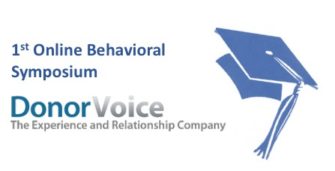Meet Kiki and the Professors


Dr. Kiki Koutmeridou
Kiki is DonorVoice’s resident behavioural scientist. She’s spent years applying her expertise directly with clients all around the world with an unparalleled track record of success. Her role covers campaign strategy, leading research projects and application of behavioral principles to fundraising.
With an MSc in Neuroscience, a PhD in Cognitive Psychology and, as former head of two applied behavioral science units, Kiki expertly applies academic understanding to real world fundraising challenges.
 Prof. Peter Ayton
Prof. Peter Ayton
Peter Ayton is professor of Psychology at City, University of London where he has been since 1992.
His research is concerned with the empirical investigation of human judgment and decision – particularly risk perception, decision-making under uncertainty and fallacies in thinking.
Peter has also held visiting appointments at Carnegie-Mellon University; UCLA, INSEAD; Princeton University; University of Mannheim and the Max Planck Institute for Human Development, Berlin.
 Prof. Hengchen Dai
Prof. Hengchen Dai
Hengchen Dai is an Assistant Professor of Management and Organizations as well as a faculty member in the Behavioral Decision Making area at Anderson School of Management at UCLA. She has published at leading management and social science journals such as Academy of Management Journal, Management Science, The Journal of Applied Psychology, and Psychological Science. Her research has been covered in major media outlets such as The Financial Times, Harvard Business Review, The Huffington Post, The New York Times, and The New Yorker.
Dai received her undergraduate degree from Peking University in Economics and Psychology and her Ph.D. from the Department of Operations, Information, and Decisions at the Wharton School at University of Pennsylvania. Prior to Anderson, Hengchen was an Assistant Professor of Organization Behavior at Olin Business School at Washington University in St. Louis.
 Prof. Ayelet Gneezy
Prof. Ayelet Gneezy
Ayelet Gneezy is an Associate Professor of Behavioral Sciences and Marketing at UCSD. Professor Gneezy received her Ph.D. from the Booth School of Business at the University of Chicago, immediately after which she joined the Rady School of Management at UCSD. Prior to obtaining her Ph.D., Professor Gneezy earned an MBA in the Netherlands, and then returned to Israel to manage the strategic planning department in DataPro Proximity (a subsidiary of BBDO Worldwide).
Professor Gneezy’s research has been published in a number of leading academic journals, including Science, PNAS, the Journal of Marketing Research, and the Journal of Consumer Research, and has been covered in media outlets such as The Wall Street Journal, the New York Times, Scientific American, and the Atlantic. She teaches Marketing Communications, Social Entrepreneurship and Consumer Behavior to MBA students.
 Prof. David Reinstein
Prof. David Reinstein
David Reinstein is an academic economist and associate professor at the University of Exeter. His research focuses on determinants and motivators of charitable giving and other-regarding behavior.
David is currently working on an ESRC-funded research and impact project “Innovations in Effective Fundraising”, jointly with the Centre for Effective Altruism. He is helping to build a collaborative wiki (see innovationsinfundraising.org) to aggregate and organize information on “what works” in enhancing effective giving. He is also working with employers, charities and advocates to test and pilot “Give if You Win”, a fundraising tool arising from his latest research (see giveifyouwin.org).
 Prof. Enrico Rubaltelli
Prof. Enrico Rubaltelli
Enrico is assistant professor of cognitive psychology at the Department of Developmental and Socialization Psychology at the University of Padova. He earned a PhD in cognitive sciences at the University of Padova in 2006. His research interests include judgment and decision-making in fields such as altruism and prosocial behavior, finance, cheating, poverty and risk perception with particular focus on terrorism. Most of his research investigates how emotions influence economic decision-making.


